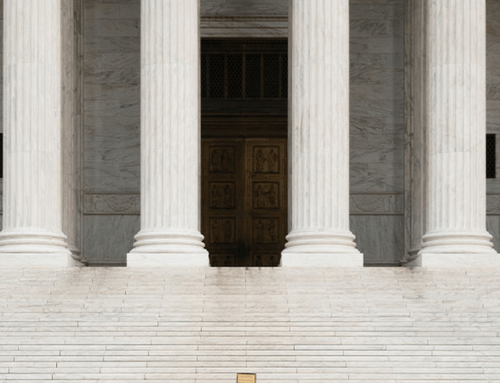What tax extenders and other changes came from the latest budget deal?
A Congressional negotiating team worked this week to reach a budget deal that included certain tax extenders, a repeal of ACA medical taxes, and retirement account changes. These were all additions to the annual spending bill that is necessary to keep the government open. The House and Senate have approved the measures, and President Trump has agreed to sign them before midnight Friday.
Expired laws have led to the need to revisit these extenders
Throughout time, certain bills have been termed “extenders,” as they have only been approved a year or two at a time. The bills are perpetually re-approved by Congress as they expire.
However, since December 31, 2017, there have been several laws that have expired without the perpetual approval necessary, leaving dead-ends for many taxpayers.
Luckily, Congress is back on the bandwagon to resurrect several, but not all, of these “extenders.” The bad news? The extension only goes through the end of 2020, but most are retroactively extended from their expiration date.
Here are some items that may impact your 2019 return
- Exclusion from gross income for cancellation of qualified principal residence debt
- Mortgage insurance premiums deductible as mortgage interest
- Medical deduction expense floor back to 7.5% instead of 10%
- Tuition and fees deduction
- Empowerment Zone Tax Incentives
- Biodiesel and renewable diesel fuels credits
- Nonbusiness energy property-if you haven’t reached the maximize credit
- Qualified fuel cell motor vehicles
- 2-wheeled plug-in electric vehicle credit
- Note: The electric vehicle credit for cars was not included
- Energy efficient home credit
- Energy efficient commercial buildings deduction
- New markets tax credit
- Employer credit for paid family and medical leave
- Work opportunity credit
- Certain provisions relating to beer, wine, and distilled spirits
- Credit for health insurance costs of eligible individuals
The bill also includes ACA changes, the SECURE Act, and corrections to the TCJA
The bill also includes reductions relating to the Affordable Health Care provisions. It also includes the repeal of the excise tax on medical devices, the “Cadillac Tax” on high-end employer health plans, and health insurance provider fees.
In addition, the provisions of The SECURE Act have also been included, which will change parts of the retirement landscape.
Some of the provisions of the Tax Cuts and Jobs Act of 2017 also received technical corrections, including changing the kiddie tax back to the parents’ tax rate, rather than using the estate and trusts tax rates.




